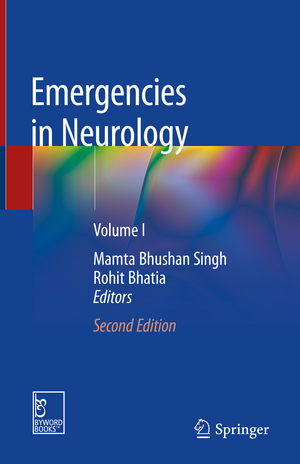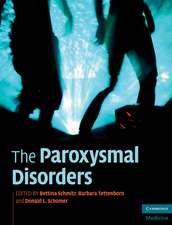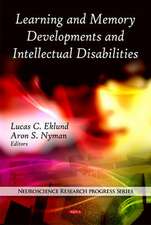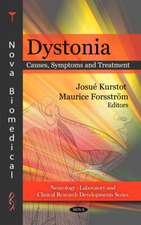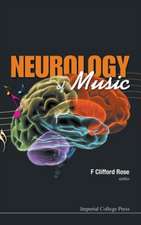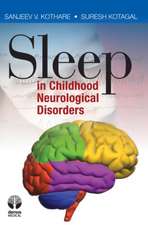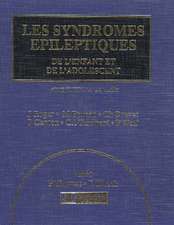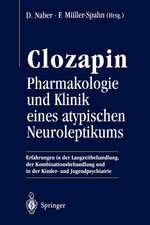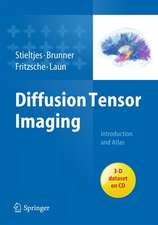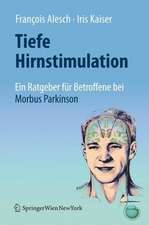Emergencies in Neurology: Volume I
Editat de Mamta Bhushan Singh, Rohit Bhatiaen Limba Engleză Hardback – 24 iul 2019
Neurological emergencies are unique in that they appear abruptly, generally follow a volatile course, and require a prompt yet balanced response. The management of neurological emergencies has been a major challenge in the past, and today, early and aggressive approaches are generally recommended. Exploring these and other aspects, the book offers a valuable asset for all practitioners seeking answers to the questions that inevitably arise while attempting to manage such critical situations.
| Toate formatele și edițiile | Preț | Express |
|---|---|---|
| Hardback (2) | 788.08 lei 38-44 zile | |
| Springer Nature Singapore – 24 iul 2019 | 788.08 lei 38-44 zile | |
| Springer Nature Singapore – 8 aug 2019 | 791.96 lei 38-44 zile |
Preț: 788.08 lei
Preț vechi: 829.55 lei
-5% Nou
Puncte Express: 1182
Preț estimativ în valută:
150.82€ • 155.80$ • 125.52£
150.82€ • 155.80$ • 125.52£
Carte tipărită la comandă
Livrare economică 21-27 martie
Preluare comenzi: 021 569.72.76
Specificații
ISBN-13: 9789811358647
ISBN-10: 9811358648
Pagini: 362
Ilustrații: XI, 335 p. 85 illus., 25 illus. in color.
Dimensiuni: 155 x 235 mm
Greutate: 0.64 kg
Ediția:2nd ed. 2019
Editura: Springer Nature Singapore
Colecția Springer
Locul publicării:Singapore, Singapore
ISBN-10: 9811358648
Pagini: 362
Ilustrații: XI, 335 p. 85 illus., 25 illus. in color.
Dimensiuni: 155 x 235 mm
Greutate: 0.64 kg
Ediția:2nd ed. 2019
Editura: Springer Nature Singapore
Colecția Springer
Locul publicării:Singapore, Singapore
Cuprins
Approach to a patients with neurological emergency.- Neuroimaging in neurological emergency.- CSF and EEG in neurological emergency.- Fever with altered sensorium.- Raised Intracranial Pressure.- Acute visual disturbances.- Generalized Convulsive Status Epilepticus.- Emergencies in Neurology – Headache.- Risk stratification and management of TIA and minor stroke.- Acute ischaemic stroke.- Intracerebral haemorrhage.- Cerebral venous thrombosis.- Diagnosis and treatment of meningitis.- Viral encephalitides.- Chronic meningitis.
Notă biografică
Mamta Bhushan Singh has been a faculty member at the All India Institute of Medical Sciences, New Delhi since 2002. She is currently a Professor at the Department of Neurology. Her work is mainly focused on reducing the burden of untreated epilepsy in India. Over the past decade, she has published her research in international journals and made presentations at numerous international meetings. Dr Singh’s ongoing initiative, which provides epilepsy care to rural Indian patients through a mobile clinic on the Lifeline Express, has been highly successful. The American Academy of Neurology selected Dr Singh as the 2016 Viste Patient Advocate of the Year in recognition of her community work on epilepsy.
Rohit Bhatia has been a faculty member at the All India Institute of Medical Sciences, New Delhi since 2003 and is currently a Professor at the Department of Neurology. His keen interest in stroke took him to the University of Calgary, Canada, where he completed a Fellowship in Cerebrovascular Disorders from the Calgary Stroke Program in 2010. Dr Bhatia has been working towards improving stroke programs ever since, and his efforts were recognized by the American Academy of Neurology with the ‘Safety and Quality’ award in 2015. Dr Bhatia has published extensively in Indian and international journals, not only on stroke but also on demyelinating disorders, neuromuscular diseases, headache and stem cell therapy. He recently headed the group appointed by the Government of India for formulating the CNS TB guidelines for managing extrapulmonary TB. Most of Dr Bhatia’s current research is in the field of stroke, including an investigation of the interplay between coronary artery disease and ischemic stroke in Indian patients.
Rohit Bhatia has been a faculty member at the All India Institute of Medical Sciences, New Delhi since 2003 and is currently a Professor at the Department of Neurology. His keen interest in stroke took him to the University of Calgary, Canada, where he completed a Fellowship in Cerebrovascular Disorders from the Calgary Stroke Program in 2010. Dr Bhatia has been working towards improving stroke programs ever since, and his efforts were recognized by the American Academy of Neurology with the ‘Safety and Quality’ award in 2015. Dr Bhatia has published extensively in Indian and international journals, not only on stroke but also on demyelinating disorders, neuromuscular diseases, headache and stem cell therapy. He recently headed the group appointed by the Government of India for formulating the CNS TB guidelines for managing extrapulmonary TB. Most of Dr Bhatia’s current research is in the field of stroke, including an investigation of the interplay between coronary artery disease and ischemic stroke in Indian patients.
Textul de pe ultima copertă
This is the second edition (in two volumes) of a well-received book that reflects current practices in the management of neurological emergencies. It was written bearing in mind the needs of first-contact physicians, who may be neurology trainees, neurology consultants, or interns. Special attention has been paid to various aspects of managing patients at the emergency department, from taking a good clinical history, to completing a quick and focused clinical examination, to investigating and commencing treatment.
Neurological emergencies are unique in that they appear abruptly, generally follow a volatile course, and require a prompt yet balanced response. The management of neurological emergencies has been a major challenge in the past, and today, early and aggressive approaches are generally recommended. Exploring these and other aspects, the book offers a valuable asset for all practitioners seeking answers to the questions that inevitably arise while attempting to manage such critical situations.
Caracteristici
Provides the readers with a quick reference guide to a wide range of neurological emergencies Covers all aspects of neurological emergencies in detail Provides an updated and evidence-based approach to clinical diagnosis and management
Recenzii
“This is an invaluable resource for anyone learning about or treating neurological emergencies. Students, residents, emergency room physicians, neurologists, and neurointensivists all would benefit from this book. ... This is a high-quality book for clinicians learning about or managing a variety of neurological emergencies. Compared to other books in the field, this book keeps clinicians in mind — it is comprehensive without being overly detailed.” (Simy Parikh, Doody's Book Reviews, December 7, 2019)
